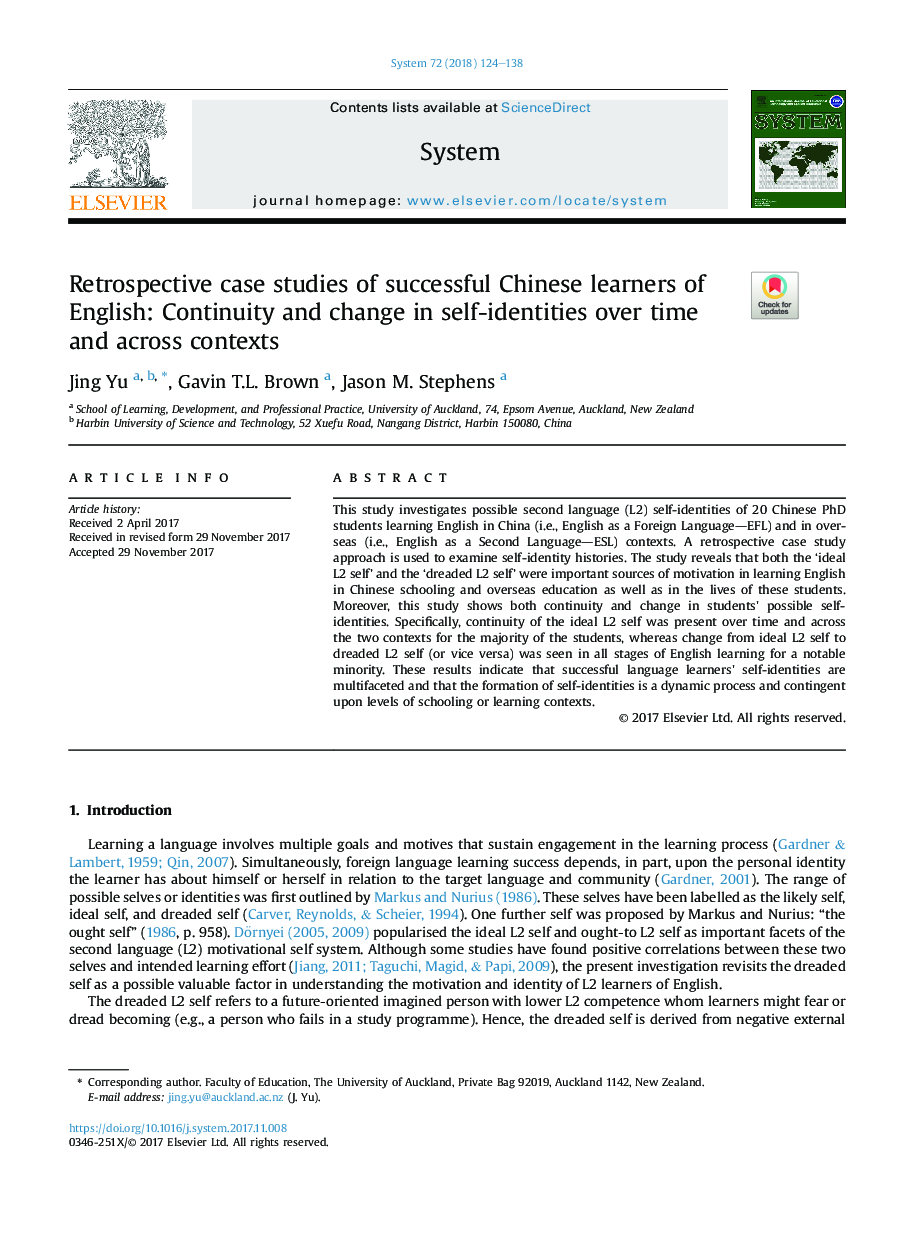| Article ID | Journal | Published Year | Pages | File Type |
|---|---|---|---|---|
| 6849412 | System | 2018 | 15 Pages |
Abstract
This study investigates possible second language (L2) self-identities of 20 Chinese PhD students learning English in China (i.e., English as a Foreign Language-EFL) and in overseas (i.e., English as a Second Language-ESL) contexts. A retrospective case study approach is used to examine self-identity histories. The study reveals that both the 'ideal L2 self' and the 'dreaded L2 self' were important sources of motivation in learning English in Chinese schooling and overseas education as well as in the lives of these students. Moreover, this study shows both continuity and change in students' possible self-identities. Specifically, continuity of the ideal L2 self was present over time and across the two contexts for the majority of the students, whereas change from ideal L2 self to dreaded L2 self (or vice versa) was seen in all stages of English learning for a notable minority. These results indicate that successful language learners' self-identities are multifaceted and that the formation of self-identities is a dynamic process and contingent upon levels of schooling or learning contexts.
Related Topics
Social Sciences and Humanities
Arts and Humanities
Language and Linguistics
Authors
Jing Yu, Gavin T.L. Brown, Jason M. Stephens,
